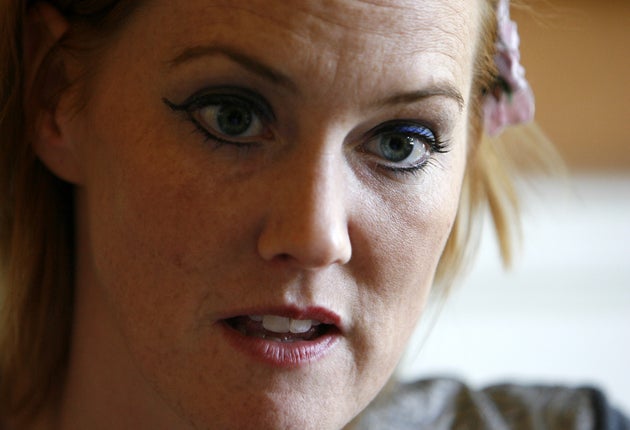Brooke's fight for democracy moves on from greedy MPs
The journalist who exposed Commons expenses tells Matthew Bell she's still pushing for change

It's ironic that when I meet Heather Brooke to discuss her campaign against secrecy, she is smarting from a previous interview in which she was asked some slightly too intrusive questions. Government secrets are one thing, the personal life of an investigative reporter quite another.
Perhaps it's not surprising we want to know more about Brooke: although it was The Daily Telegraph which published the expenses scoop, it was she who got the ball rolling by demanding to see the expense details of all 646 MPs more than five years ago. At first she was told this would be too expensive but, despite constant resistance, she pressed for it through the Freedom of Information Act and was finally awaiting its release when the data was leaked to the Telegraph. Her campaign has made her a hero of the British press, and last month she won the Judges Award at the British Press Awards. Where does her drive come from?
"I will ask a question which I think is basic, and I have a right to know," she says simply. "What I like to do is to look at systems: are they working, are they not working? Are powerful people exercising their power for the benefit of the populace of are they just trying to maximise their own personal benefits?"
She doesn't talk of any burning sense of injustice or hark back to an epiphany in her early career: as she argues in her new book, public bodies are funded by the taxpayer and we therefore have a right to information about how our money is being spent. In The Silent State, she issues a clarion call for Britons to resist the creeping secrecy in public affairs, from clandestine courts to obfuscatory press offices.
Brooke, 39, hardly fits the Raymond Chandler mould of investigator – a grizzled hack in a mac. But training in the US, where she was a crime reporter, she was used to handling public information such as crime reports and statistics. When she moved to the UK and made similar requests, she was astonished by the obfuscation surrounding public information that, in America, she would access as a matter of routine. "There you can get information legitimately though legitimate channels," she says. "You just go the police station and you get a load of information. You don't have to rely on who you know or doing people favours, or buying information. In Britain it's different; there aren't any public records, for one thing."
Is that quite right? She cites an example: the street where she used to live in east London had a litter problem, so she rang the council to ask who was responsible for litter in her area. The council refused to reveal the name of that person. "They cited data protection," she says. "That's a load of nonsense. That person is a public servant working for me: why should I not know who they are?"
The logic is persuasive and few could deny Brooke has done a public service in exposing the abuse of parliamentary privileges. But has an unfortunate by-product of her work been to erode public trust in MPs? "If telling the truth about what our MPs are doing, which is all that I did, is considered damaging to democracy, then people have a really messed-up view of what democracy is," she says. "That's the kind of thinking you've got in North Korea, where we think we must maintain the authority of the supreme leader."
One of her pet hates is the anonymity of spokesmen: "Whenever possible I name the spokesman who gives me a quote," she says. "They always complain but why shouldn't their name be attached to what they are saying? Just think if Damian McBride had had his name attached to those infamous Downing Street briefings."
The timing of her book's publication, in the run-up to the election, is no coincidence. "If change doesn't happen now, then it never will. People have been energised by the expenses story."
Colleagues have recommended she turns her attention to MEPs' expenses next, but she admits to having no interest in getting bogged down in European bureaucracy.
Nor does she have any intention of returning to America, where she says the serious press has become "almost academic" in its dryness. The opposite is true here, she says, where journalists are "treated like so many naughty school children who can't be trusted with pure unadulterated factual data, so when they get hold of it they go a bit crazy".
Despite this, she has chosen to remain in Britain, and has made it her job to challenge the British notion that we live in the best democracy in the world: you don't have to ask Brooke about her private life to see she is a born lover of mischief, and as such is very much at home here.
The Silent State is published by Heinemann on 8 April at £12.99
Subscribe to Independent Premium to bookmark this article
Want to bookmark your favourite articles and stories to read or reference later? Start your Independent Premium subscription today.

Join our commenting forum
Join thought-provoking conversations, follow other Independent readers and see their replies